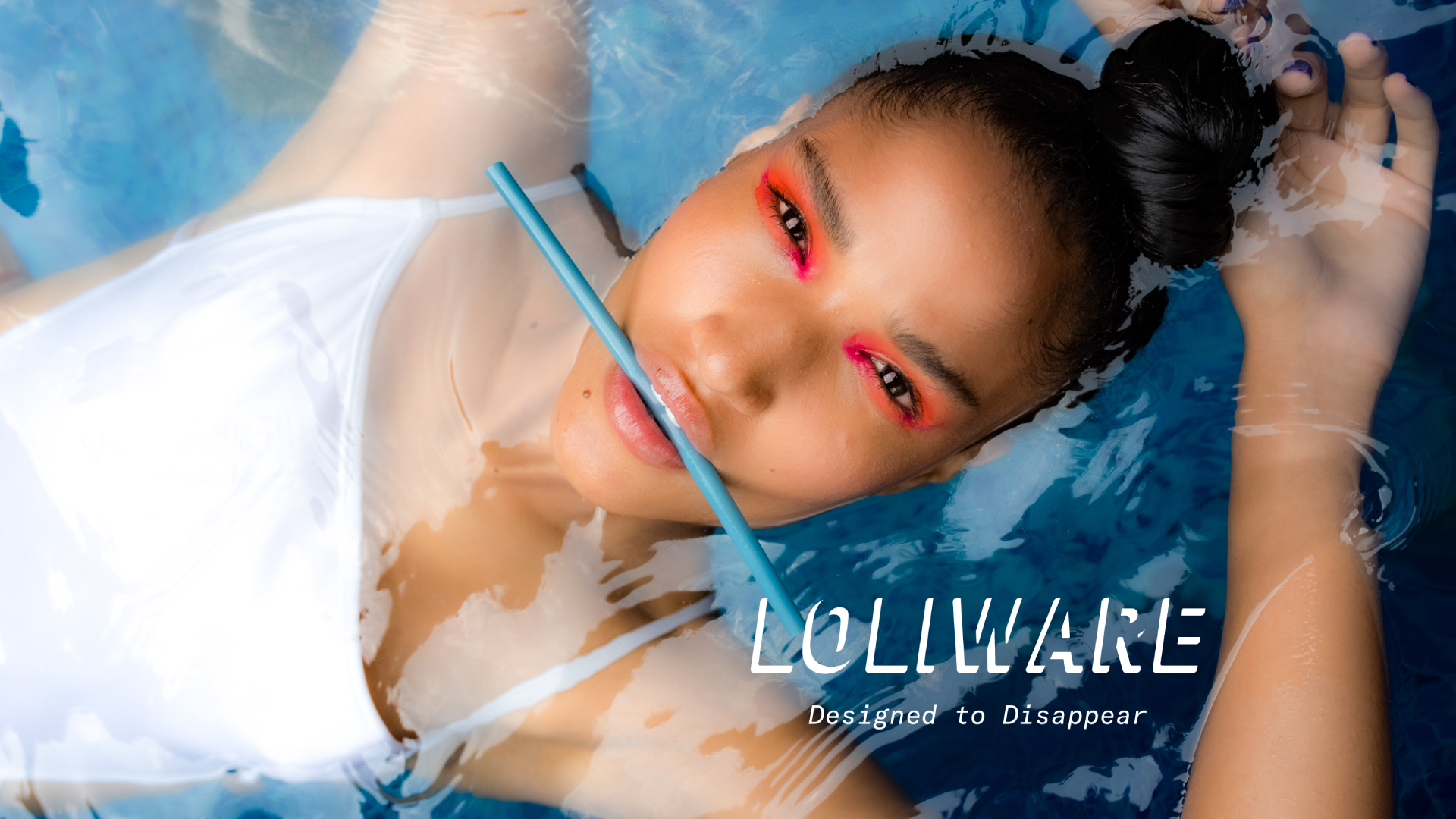The last few years have seen many cities ban plastic bags, plastic straws and other common forms of waste, giving environmentally conscious alternatives a huge boost — among them Loliware, purveyor of fine disposable goods created from kelp. Huge demand and smart sourcing has attracted a big first funding round.
I covered Loliware early on when it was one of the first companies to be invested in by the Ocean Solutions Accelerator, a program started in 2017 by the nonprofit Sustainable Ocean Alliance. Founder Chelsea “Sea” Briganti told me about the new funding on the SOA’s strange yet quite successful “Accelerator at Sea” program late last year.
The company makes straws primarily, with other products planned, out of kelp matter. Kelp, if you’re not familiar, is a common type of aquatic algae (also called seaweed) that can grow quite large and is known for its robustness. It also grows in vast, vast quantities in many coastal locations, creating “kelp forests” that sustain entire ecosystems. Intelligent stewardship of these fast-growing kelp stocks could make them a significantly better source than corn or paper, which are currently used to create most biodegradable straws.
A proprietary process turns the kelp into straws that feel plastic-like but degrade simply (and not in your hot drink — it can stand considerably more exposure than corn and paper-based straws). Naturally the taste, desirable in some circumstances but not when drinking a seltzer, is also removed.
It took a lot of R&D and fine-tuning, Briganti told me:
“None of this has ever been done before. We led all development from material technology to new-to-world engineering of machinery and manufacturing practices. This way we ensure all aspects of the product’s development are truly scalable.”
They’ve gone through more than a thousand prototypes and are continuing to iterate as advances make possible things like higher flexibility or different shapes.
“Ultimately our material is a massive departure from the paradigms with which other companies are approaching the development of biodegradable materials,” she said. “They start with a problematic, last-forever, fossil fuel-derived paradigm and try to make it not so bad — this is step-change development and too slow and frumpy to truly make an impact.”

Of course it doesn’t matter how good your process is if no one is buying it, a fact that plagues many ethics-first operations, but in fact demand has grown so fast that Loliware’s biggest challenge has been scaling to meet it. The company has gone from a few million to a hundred million in recent years to a projected billion straws shipping in 2020.
“It takes us about 12 months to get to full automation [from the lab],” she said. “Once we get to full automation, we license the tech to a strategic plastic or paper manufacturer. Meaning, we do not manufacture billions of straws, or anything, in-house.”
It makes sense, of course, just as contracting out your PCB or plastic mold or what have you. Briganti wanted to have global impact, and that requires taking advantage of global infrastructure that’s already there.
Lastly, the consideration of a sustainable ecosystem was always important to Briganti, as the whole company is founded on the idea of reducing waste and using fundamentally ethical processes.
“Our products utilize a super-sustainable supply of seaweed, a supply that is overseen and regulated by local governments,” Briganti said. “In 2020, Loliware will launch the first-ever Algae Sustainability Council (ASC), which allows us to be at the helm of the design of these new global seaweed supply chain systems as well as establishing the oversight, ensuring sustainable practices and equitability. We are also pioneering what we have coined the ‘Zero Waste Circular Extraction Methodology,’ which will be a new paradigm in seaweed processing, utilizing every component of the biomass as it suggests.”
The $5.9 million “super seed” round has many investors, including several who were on board the ship in Alaska for the Accelerator at Sea this past October (as SOA Seabird Ventures). The CEO of Blue Bottle Coffee has invested, as have New York Ventures, Magic Hour, For Good VC, Hatzimemos/Libby, Geekdom Fund, HUmanCo VC, CityRock and Closed Loop Partners.
The money will be used for scaling and further R&D; Loliware plans to launch several new straw types (like a bent straw for juice boxes), a cup and a new utensil. 2020 may be the year you start seeing the company’s straws in your favorite coffee shop rather than a few early adopters here and there. You can keep track of where they can be found here at the company’s website.

Recent Comments